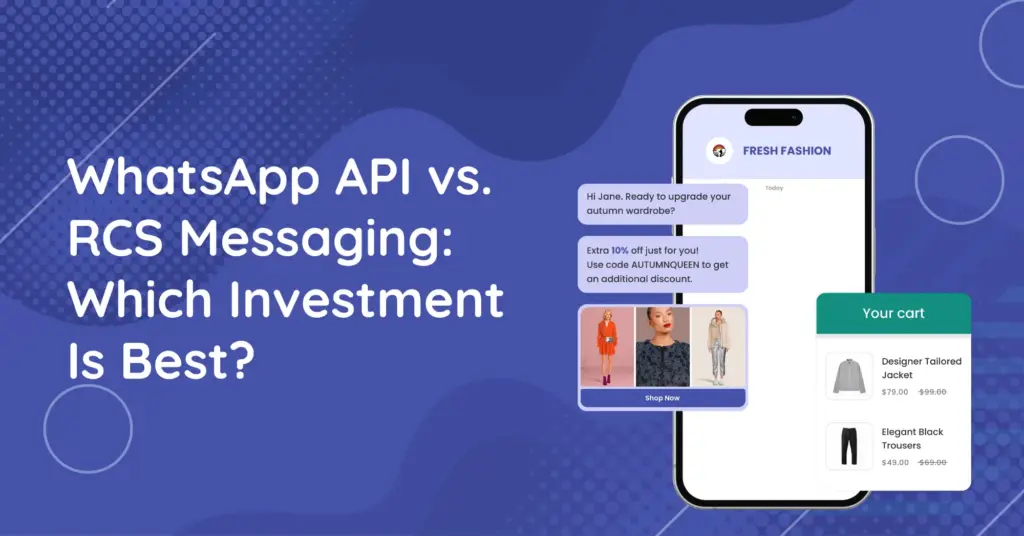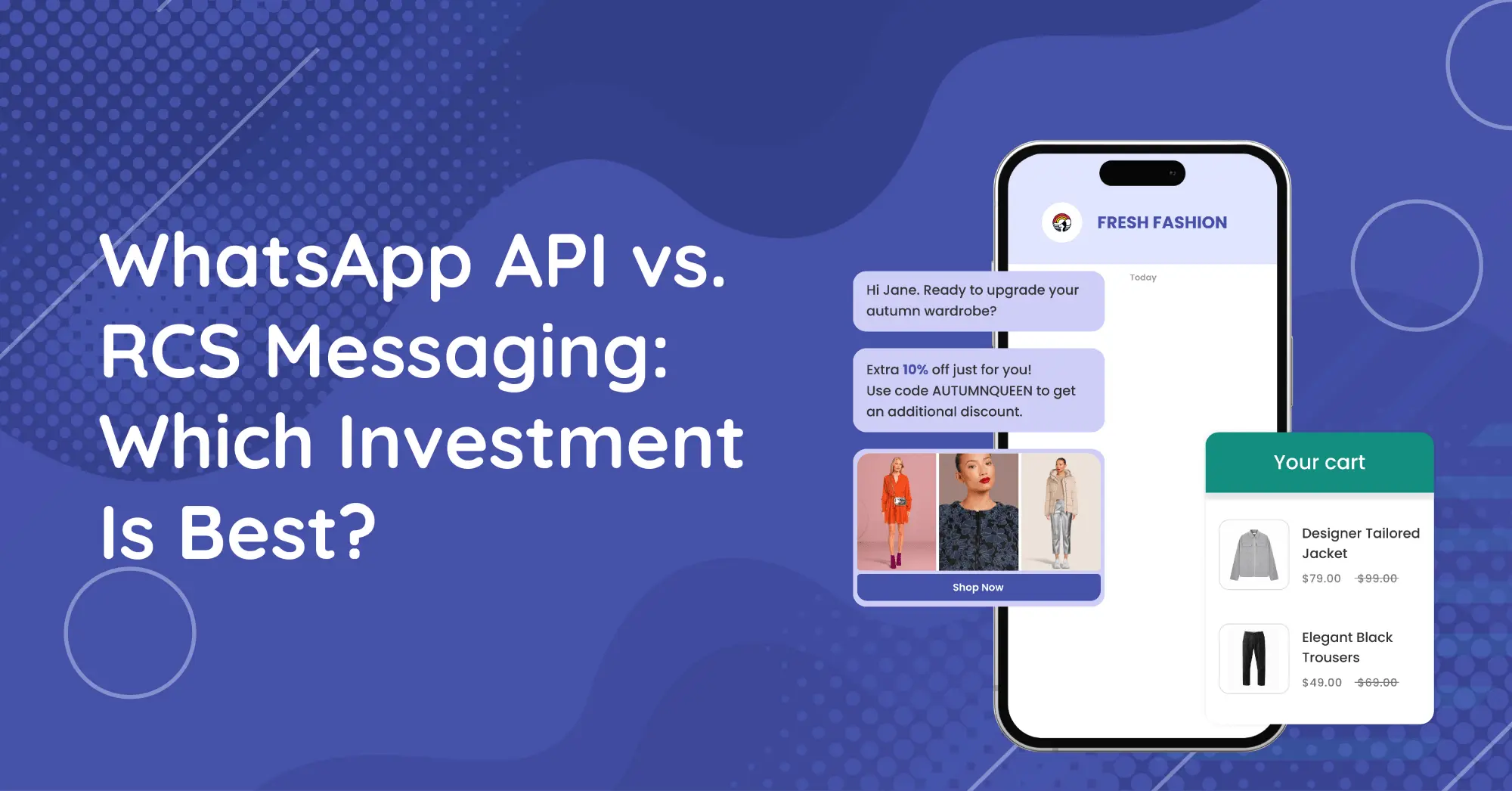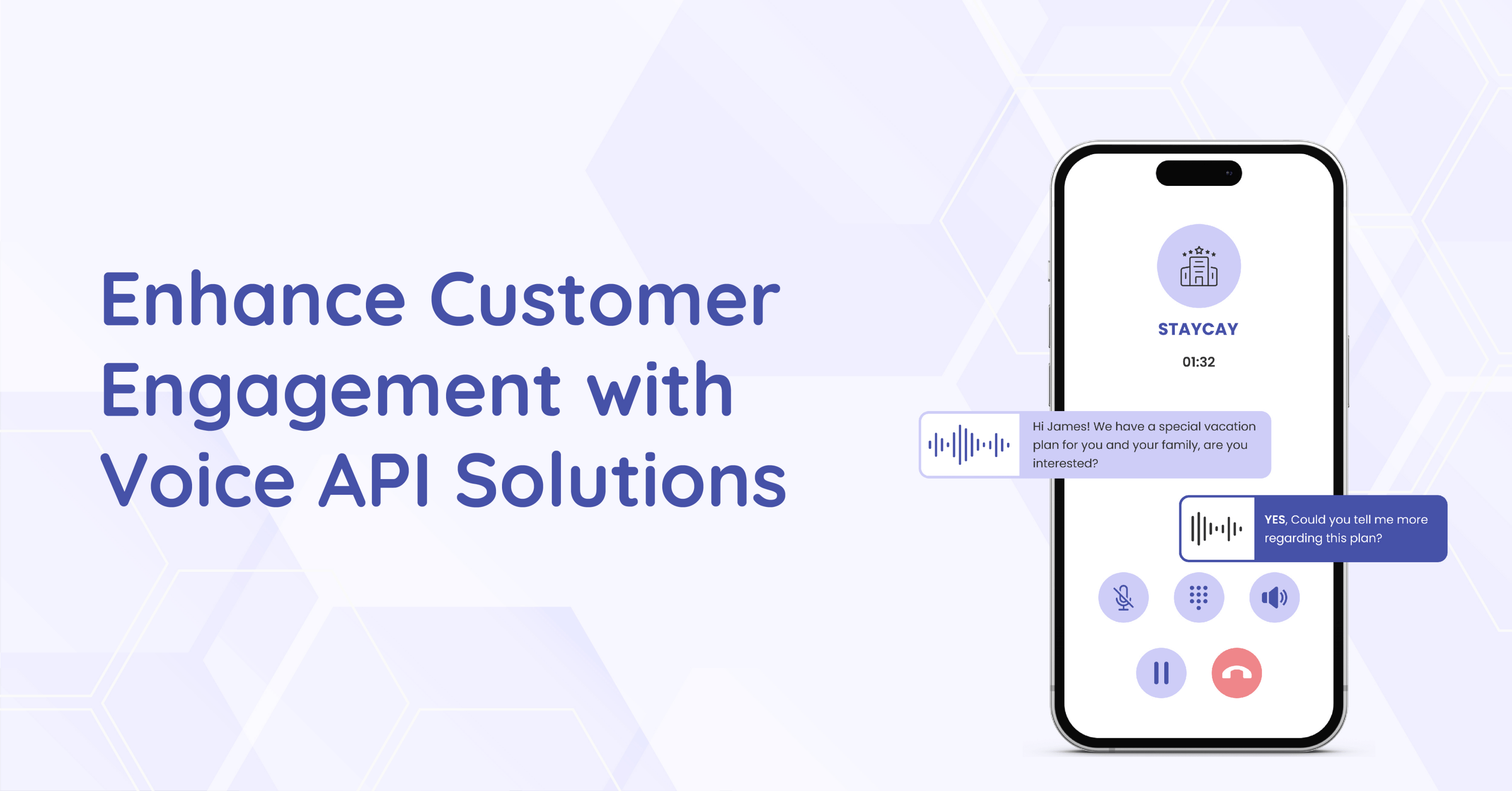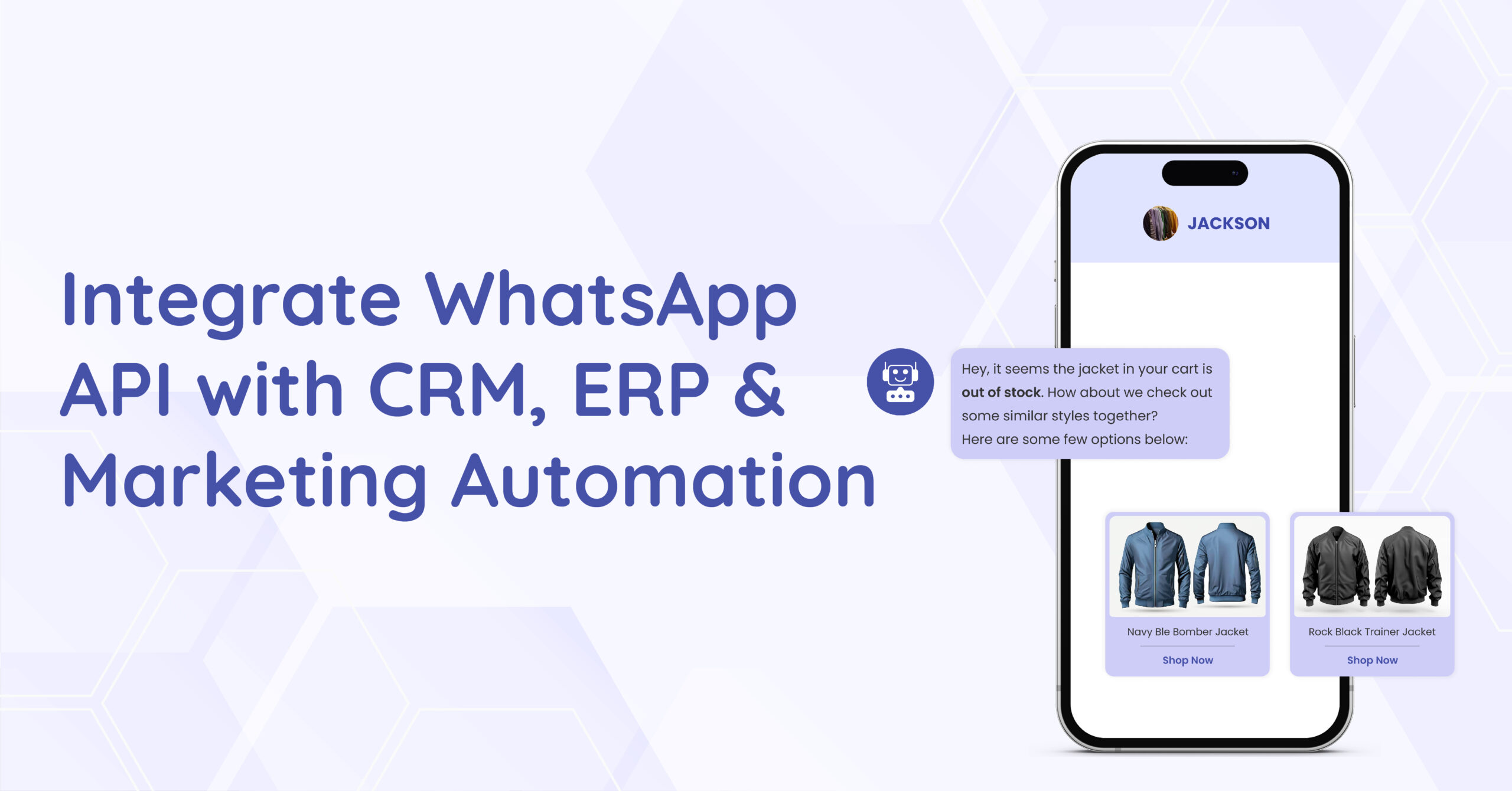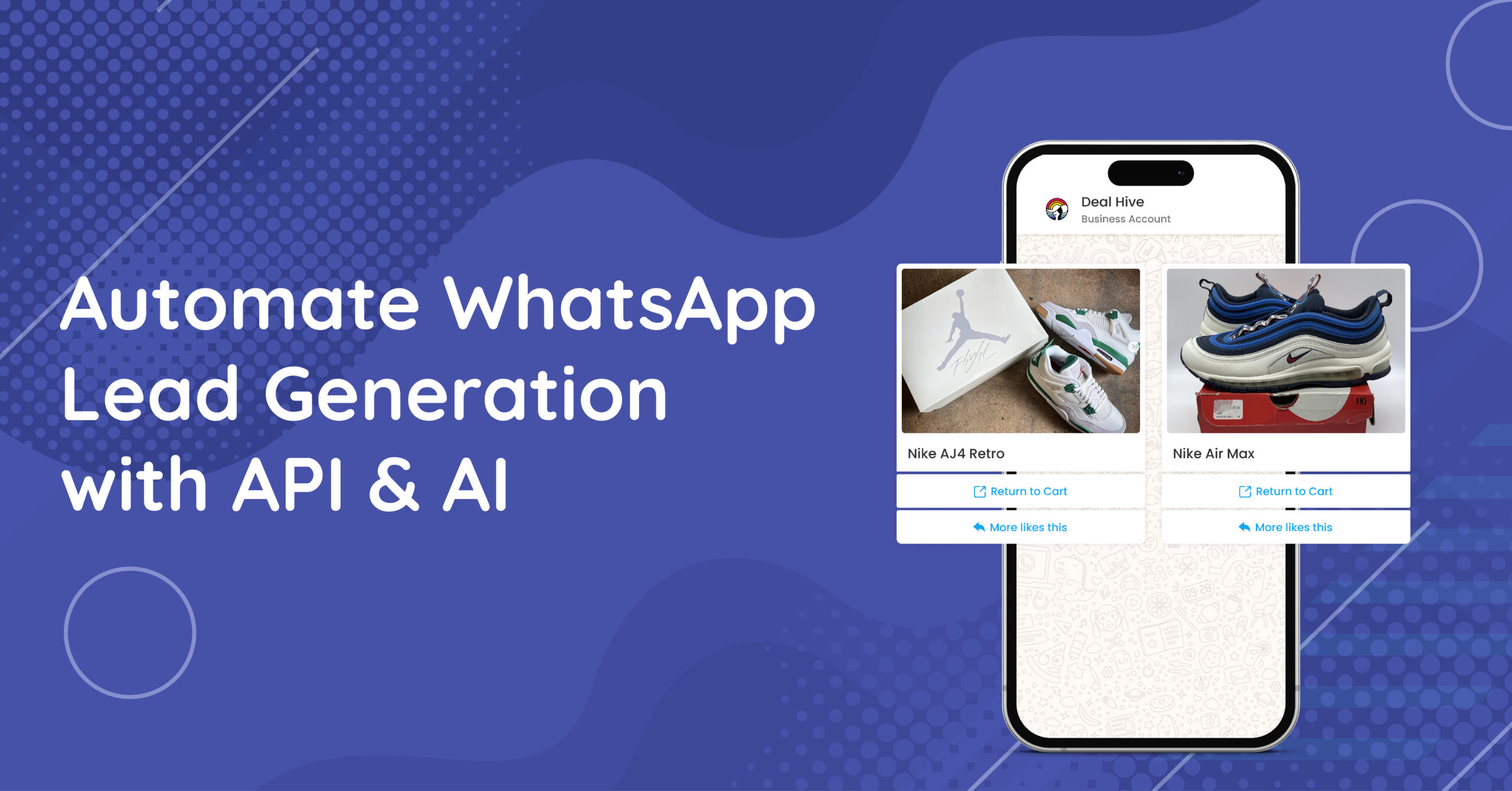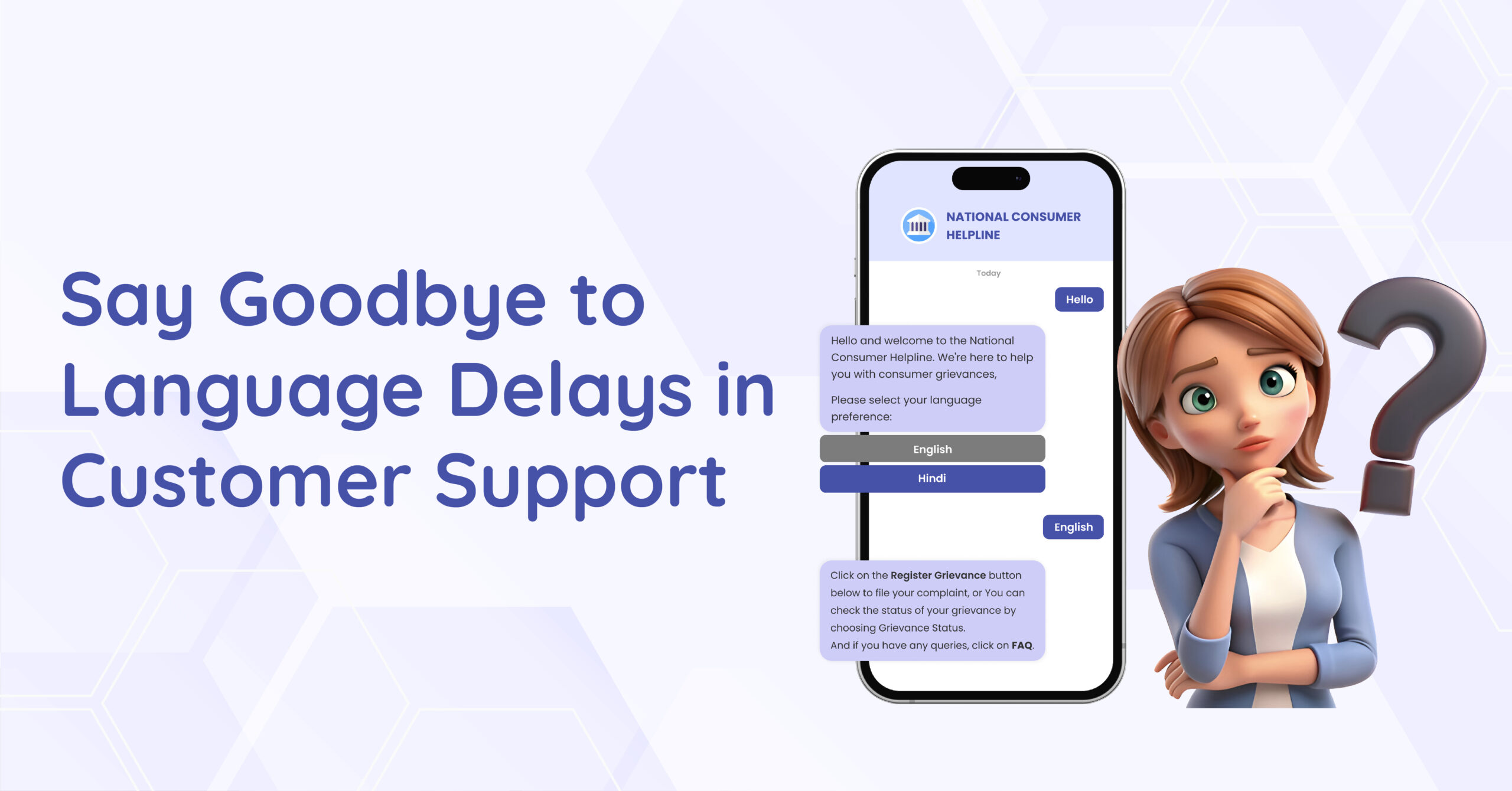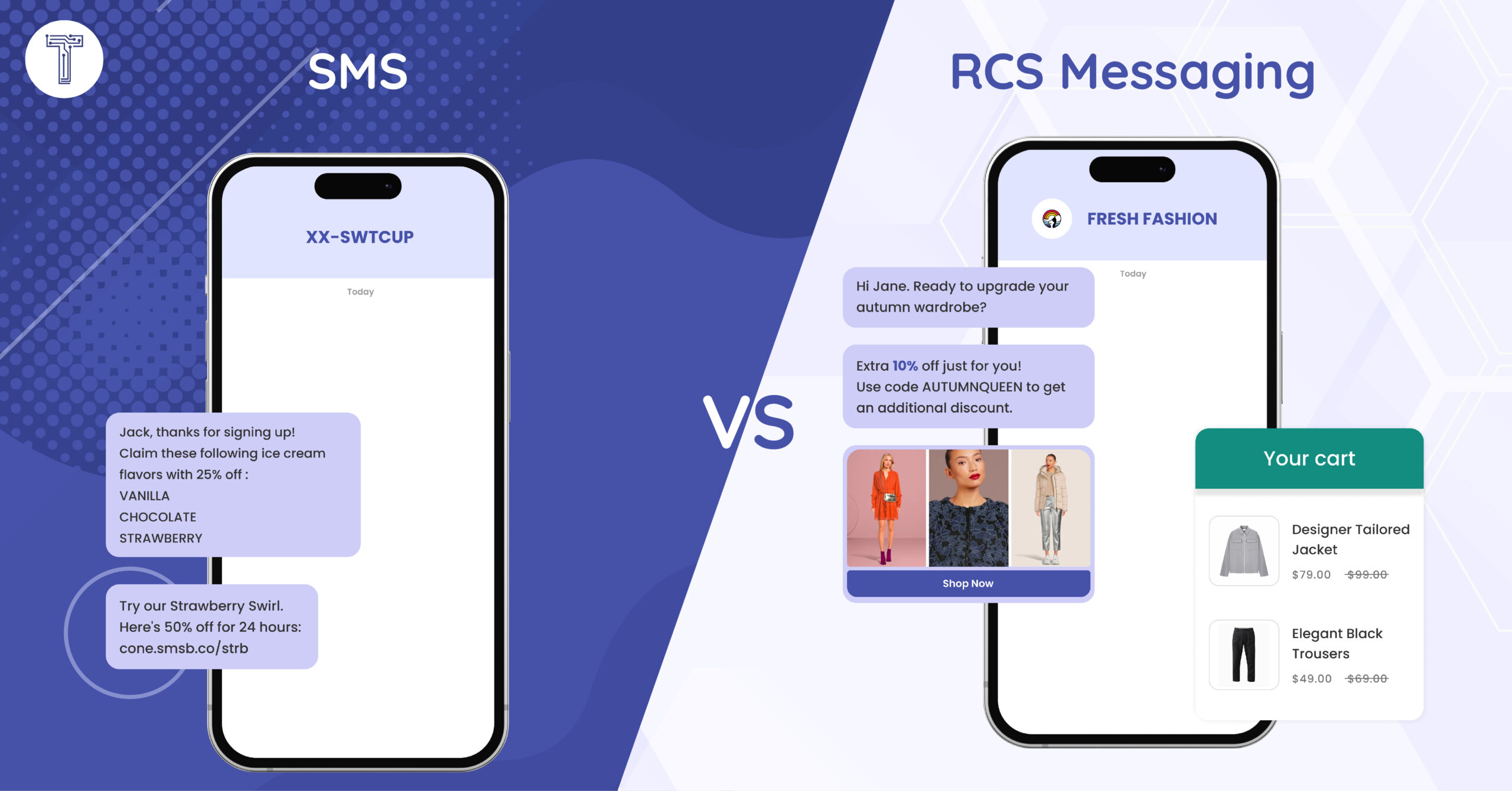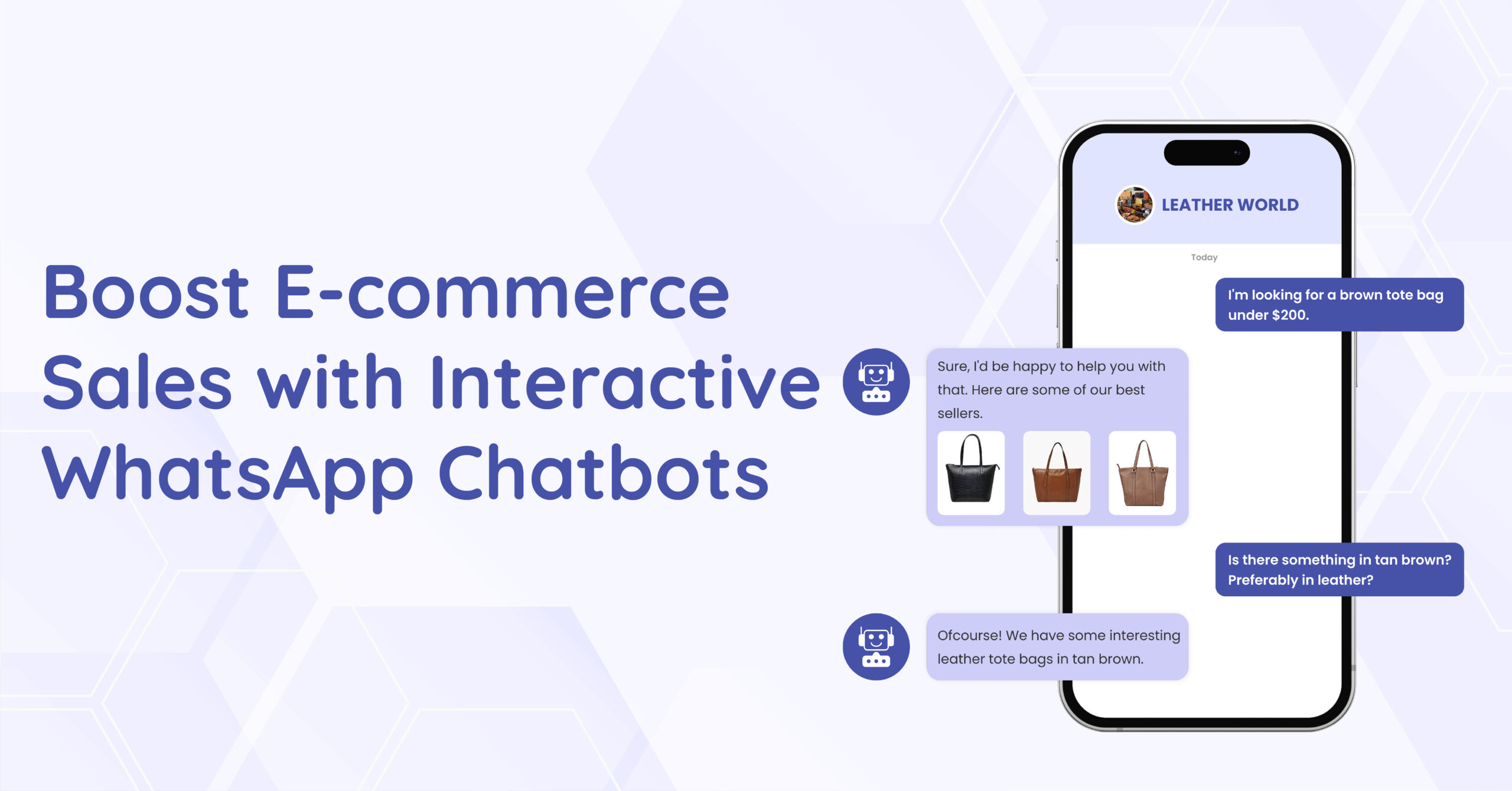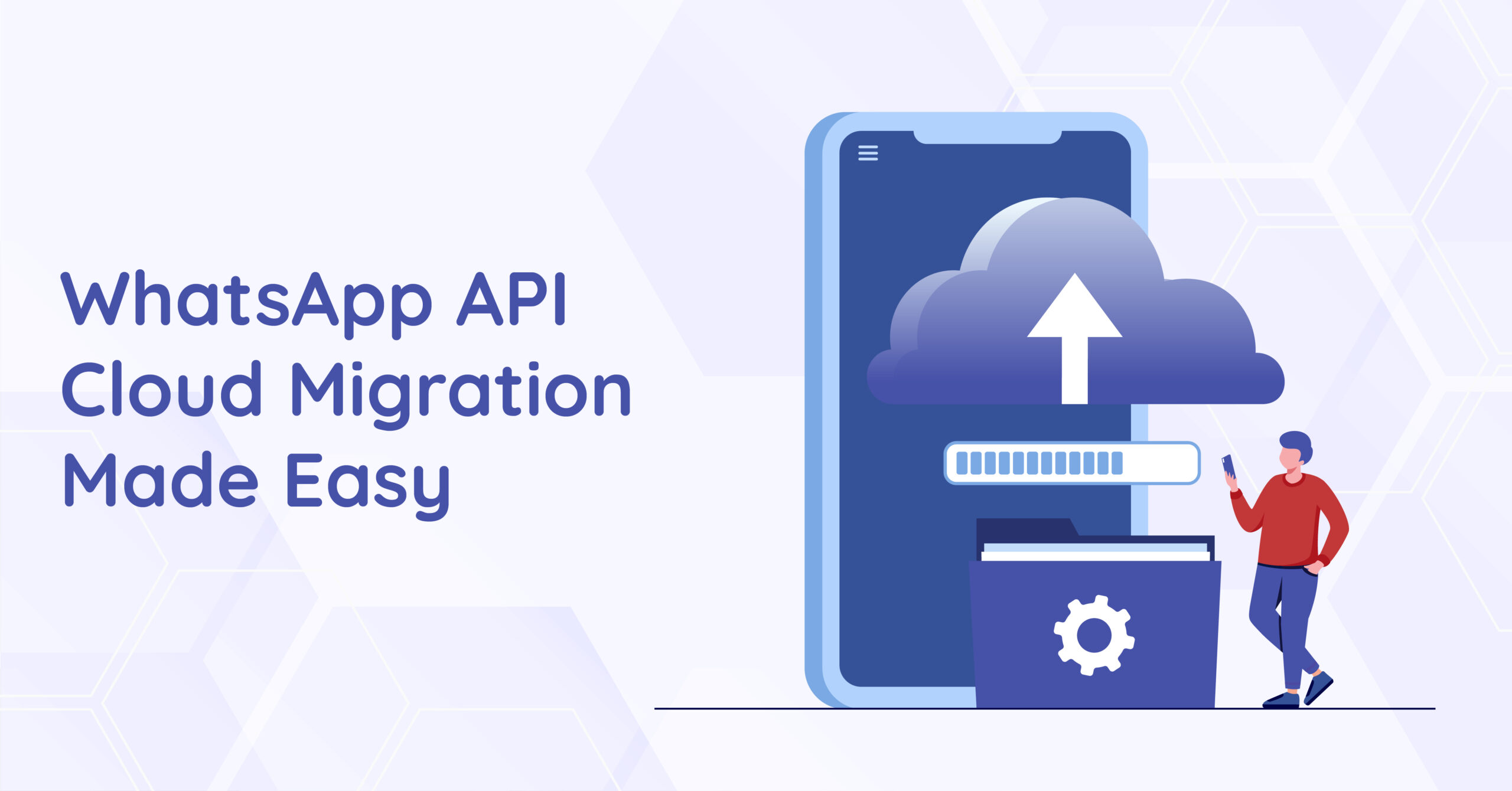Customer communication is a key part of business operations. Companies look for methods that keep support costs low while offering a good customer experience.
Two popular options are the WhatsApp Business API and RCS Messaging, and each of these platforms has its own set of features, advantages, and challenges.
In this guide, we provide a detailed comparison to help you decide which one may be the right investment for your business.
What is WhatsApp Business API?
The WhatsApp Business API is designed for medium to large businesses. It allows companies to send and receive messages in real time, use automation through chatbots, and integrate messaging with other business systems like CRM tools.
The API helps streamline customer interactions by enabling businesses to handle large volumes of messages efficiently.
Key Features of WhatsApp API
- Real-time messaging: It enables businesses to send and receive messages instantly, which helps in reducing response times.
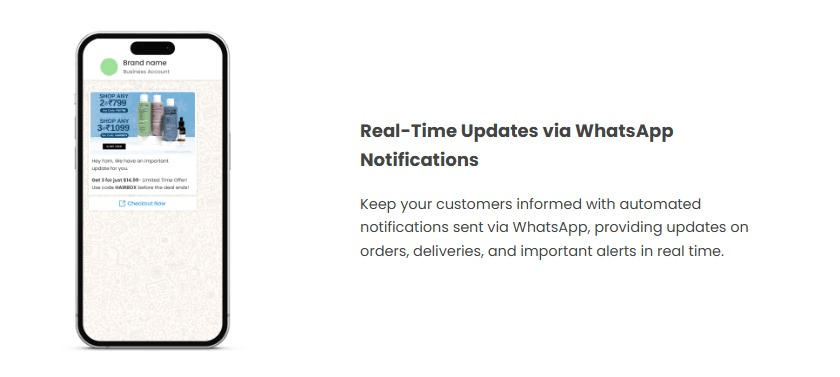
- Automation with Chatbots: Businesses can set up chatbots to answer common questions automatically. This automation reduces the workload on human agents and can lower support costs.
- Integration with Business Tools: The API can be integrated with existing systems like CRM software. This integration creates a complete view of customer interactions and supports personalized communication.
- Global Reach: WhatsApp has a large and established user base, allowing businesses to reach customers in many regions around the world.
- Cost Management: While there are setup and monthly fees, many businesses find that the cost is justified by the reduction in support expenses and the improvement in customer service.
What is RCS Messaging?
RCS (Rich Communication Services) Messaging is seen as the next evolution of SMS. It enhances traditional SMS by adding features that go beyond simple text messages.
RCS allows for multimedia sharing, interactive buttons, and read receipts. The goal of RCS is to provide a richer messaging experience while retaining the familiarity of standard text messaging.
Key Features of RCS Messaging
- Multimedia Support: Unlike SMS, RCS supports sending images, videos, and audio files, making messages more engaging.
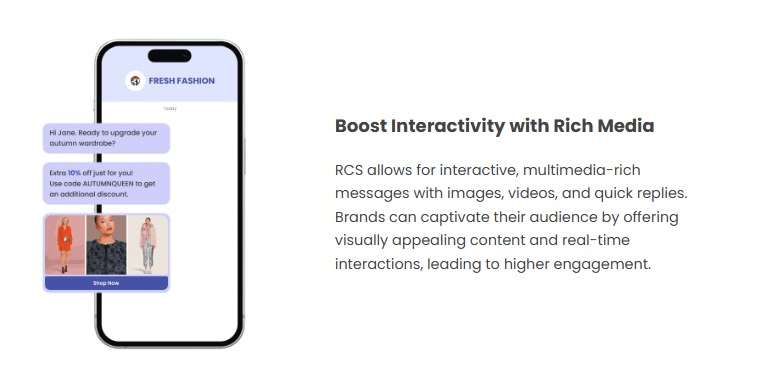
- Interactive Elements: RCS messages can include buttons and other interactive elements. This interactivity makes it easier for customers to take action directly from the message.
- Enhanced Read Receipts: Similar to many modern messaging apps, RCS provides detailed delivery and read statuses.
- Standardization Across Devices: RCS is designed to work across different devices and carriers without the need for a separate app.
- Growing Adoption: RCS is still being adopted across various regions and by different mobile carriers. This means that while it offers advanced features, its reach may not be as extensive as WhatsApp.
Comparing WhatsApp API and RCS Messaging
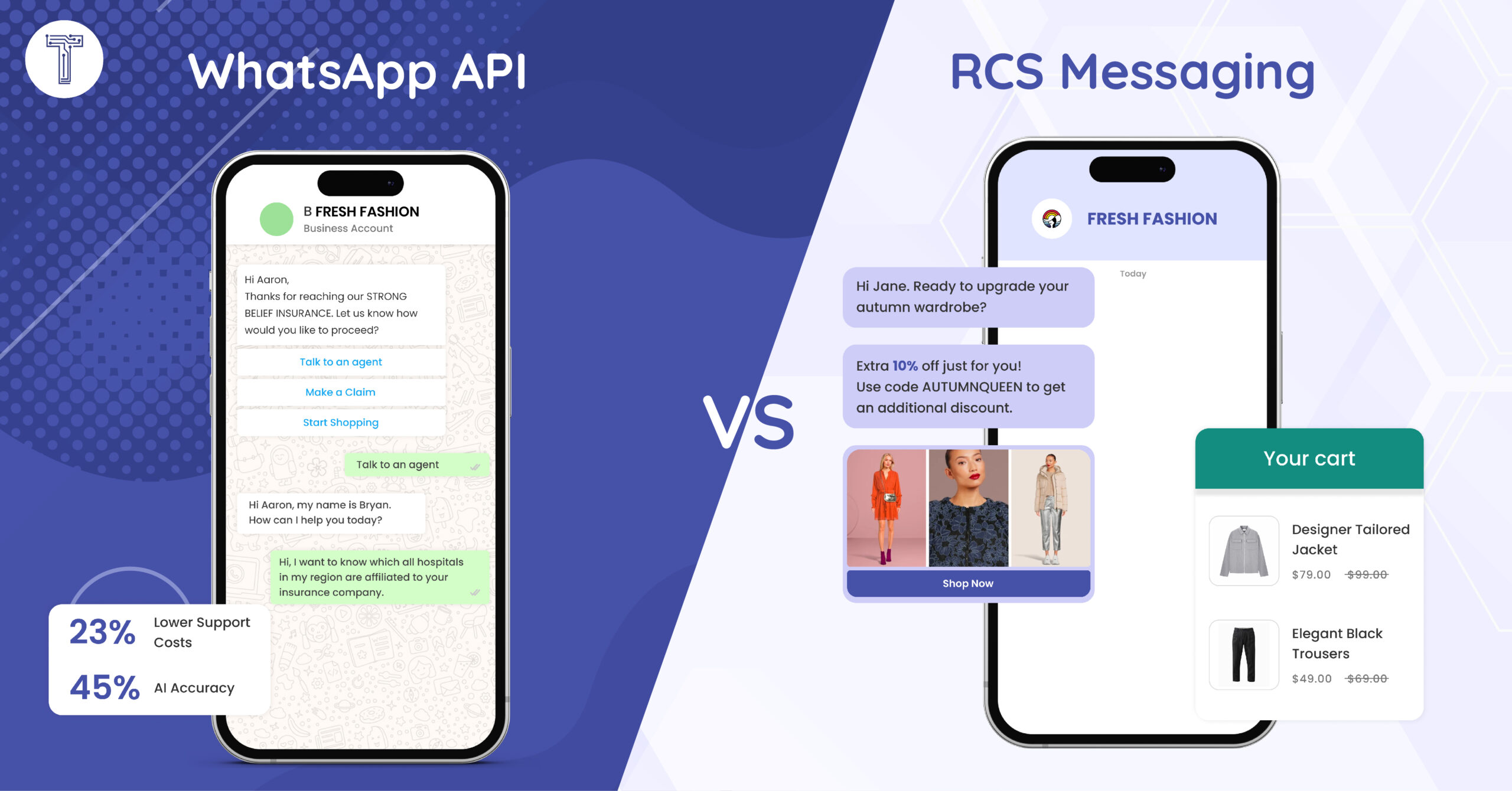
| Feature | WhatsApp API | RCS Messaging |
| Ease of Setup and Implementation | Well-defined setup, especially for businesses already using WhatsApp | Setup is more complex due to dependency on carrier support and regional availability, leading to less predictable implementation. |
| Cost Considerations | Involves a one-time setup fee and recurring monthly fees;
Predictable pricing that often results in a positive ROI by reducing support costs. |
Costs vary by carrier and region, making budgeting more challenging;
The expense structure is less predictable despite potential support cost savings. |
| Integration and Support | Integrates well with existing systems like CRM and ERP tools; strong vendor support simplifies the integration process. | Integration is possible but may require more technical effort and coordination with multiple carriers and standards. |
| User Adoption and Reach | WhatsApp is one of the most popular messaging apps worldwide, with a large, established user base that eases customer outreach. | Adoption is still growing; in many regions, fewer users have access to RCS, potentially limiting the reach of messaging campaigns. |
Use Cases and Examples
Example 1: A Retail Business
A mid-sized retail company using WhatsApp API set up automated chatbots for order tracking, product details, and returns. This reduced response times from hours to minutes and provided consistent service worldwide.
In contrast, using RCS Messaging could offer richer visuals and interactive promotions, but its benefits depend on regional adoption.
Example 2: A Service-Based Company
A service company using WhatsApp API integrated with its CRM to offer personalized, real-time responses. Automation cut down the need for a large support team and reduced costs.
Switching to RCS might allow for interactive surveys and feedback forms, though its added benefits depend on customer device compatibility.
Which One Should Businesses Invest In?
Choosing between WhatsApp API and RCS Messaging depends on several factors:
- Customer Base: If most of your customers already use WhatsApp, it makes sense to invest in the WhatsApp API. Its wide adoption means you are likely to reach a larger audience.
- Required Features: If your business relies heavily on text-based automation and integration with existing systems, the WhatsApp API is a strong candidate.
On the other hand, if you need to send rich media and interactive content, and you are targeting regions with high RCS support, RCS Messaging might be more suitable.
- Cost and Budget: Consider the total cost of ownership. The WhatsApp API offers predictable pricing, while RCS Messaging costs can vary by carrier and region. Evaluate your budget and the expected ROI from both platforms.
- Ease of Integration: For businesses that already use various digital tools, integrating the WhatsApp API may be easier. RCS Messaging might require additional technical effort and coordination with multiple carriers.
- Long-Term Strategy: Think about the future. The WhatsApp API is a mature solution with a proven track record. RCS Messaging is evolving and may offer more advanced features in the future, but its current adoption may not be as widespread.
In many cases, businesses with a global customer base and a need for efficient, text-based automation may find the WhatsApp API to be the better investment. Meanwhile, companies that want to experiment with richer media and interactive messaging and are operating in regions with strong RCS support could benefit from RCS Messaging.
Final Thoughts
When deciding between WhatsApp API and RCS Messaging, there is no one-size-fits-all answer. Each platform has its own strengths and potential drawbacks. The key is to consider your business’s specific needs, customer demographics, budget, and long-term goals.
- WhatsApp API is a solid, proven solution for real-time customer communication, offering ease of integration, automation, and a broad user base. Its predictable costs and established support make it a safe choice for many businesses.
- RCS Messaging offers advanced features such as rich media support and interactive elements. It holds promise for businesses that need to deliver more engaging messages, but its benefits depend largely on regional adoption and carrier support.
At Techno Core Logic, we help our clients navigate these choices with a focus on smooth integration and reliable performance. Your decision should be based on:
- The habits and preferences of your customer base,
- The features that best support your communication strategy,
- Your budget and expected ROI,
- And your long-term plans for growth and integration with existing systems.
Investing in the right messaging platform can help you reduce support costs, improve customer satisfaction, and ultimately drive better business results. Evaluate your needs, review your options, and choose the platform that offers the best balance of cost, features, and ease of use.

